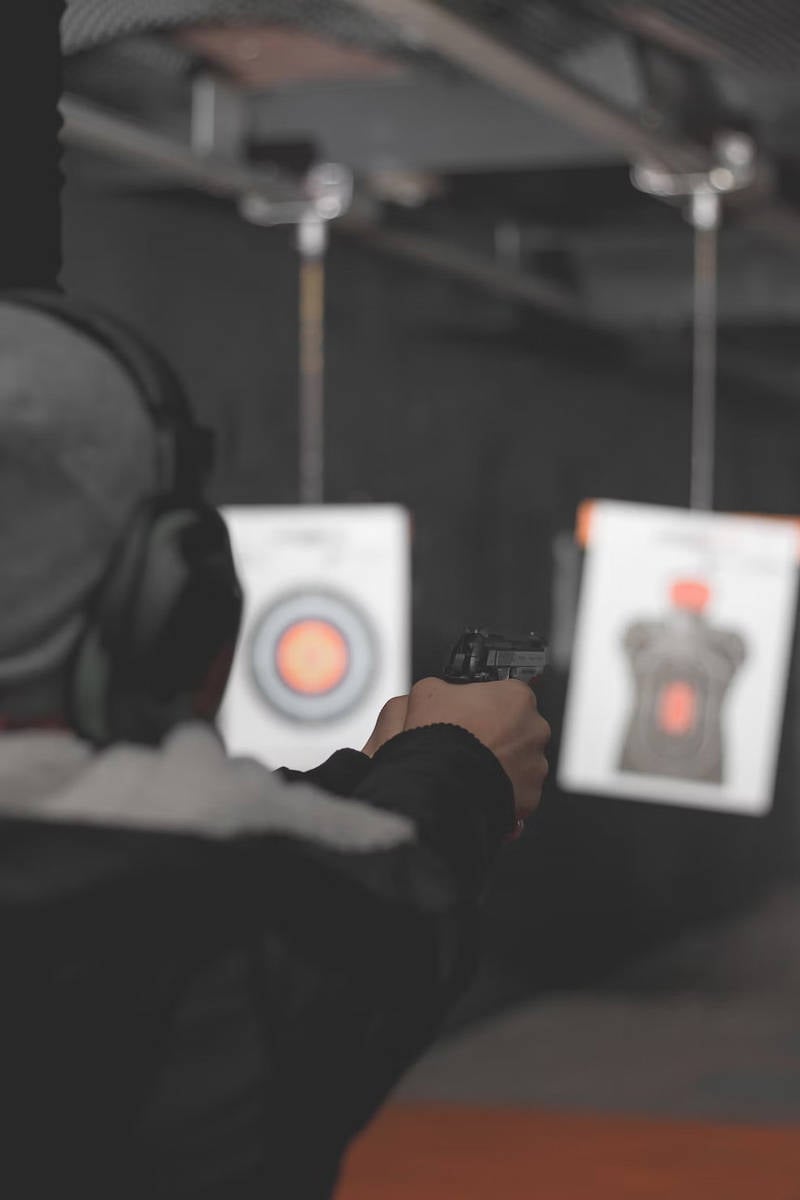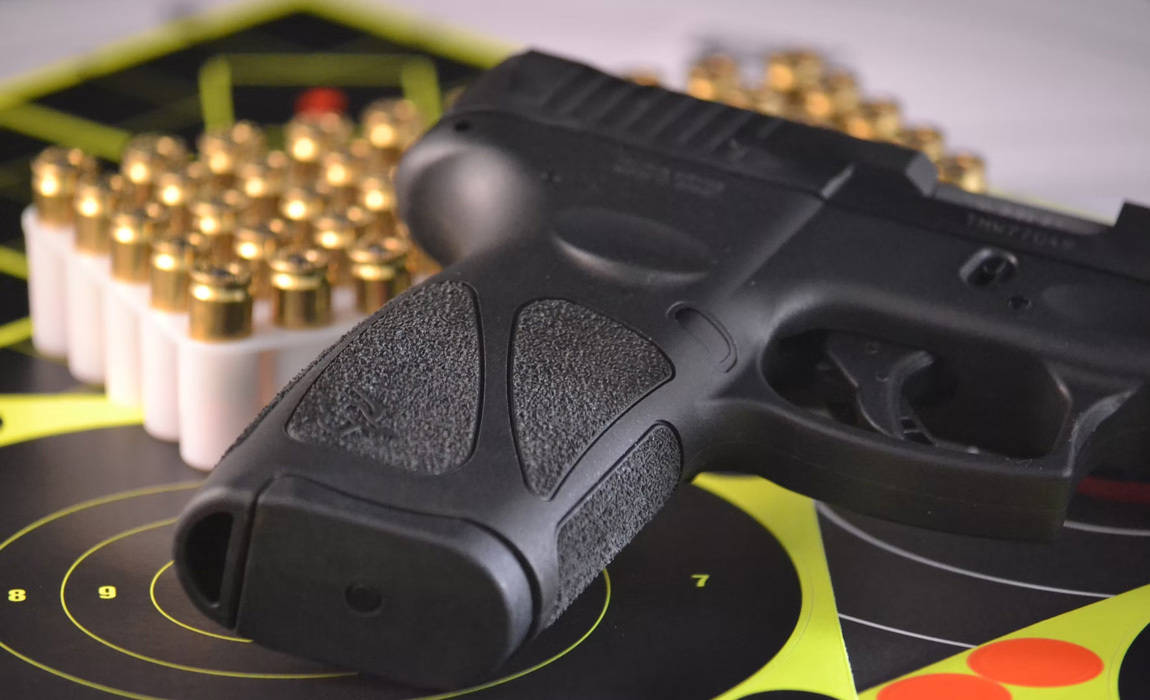Experienced shooters understand that consistent practice separates competent gun owners from truly skilled marksmen. With ammunition costs fluctuating due to market pressures and supply chain challenges, smart selection of practice rounds becomes crucial for maintaining your edge without emptying your wallet. Whether you're preparing for home defense scenarios, planning range sessions during guys trips, or teaching the next generation proper firearms handling, choosing the right practice ammunition impacts both your skills and your budget. The key lies in understanding when to invest in premium rounds versus when quality practice ammunition delivers the training value you need.
What Do You Call Your "Guys Trips"?
- Quality practice ammunition provides consistent performance for skill development without the premium cost of match-grade or defensive rounds
- Understanding the performance differences between practice and defensive loads ensures you're prepared for real-world scenarios where your firearm must perform flawlessly
- Cost-effective training solutions like laser systems and bulk purchasing strategies extend your range time and skill development opportunities
- Proper ammunition knowledge enhances safety during range sessions and group activities, demonstrating competence and leadership
- Smart selection supports long-term skill maintenance essential for home defense readiness and recreational shooting enjoyment
Smart Selection Criteria for Practice Ammunition
When selecting practice ammunition for target practice, successful shooters focus on reliability over precision while maintaining safety standards. Your practice rounds should feed consistently and fire reliably - malfunctions during training sessions waste time and can develop bad habits when clearing jams becomes routine.
Compatibility comes first. Verify ammunition matches your firearm's exact specifications, including caliber and pressure ratings. Using incorrect ammunition creates dangerous situations that experienced shooters never risk. Quality manufacturers like Federal Premium, CCI, Hornady, Winchester, and Fiocchi maintain consistent standards that deliver reliable feeding and ejection.
Range requirements matter. Many indoor facilities restrict certain ammunition types, particularly steel-core or steel-cased rounds that can damage backstops or create safety hazards. Check your local range's policies before purchasing bulk quantities - nothing's more frustrating than discovering your ammunition violates range rules during a planned guys weekend at the range.
Storage considerations affect long-term value. Practice ammunition must be stored properly in cool, dry conditions to maintain reliability. If you're buying in bulk to reduce per-round costs, ensure you have adequate storage space and can reasonably use the quantity before degradation occurs.
Practice vs Defense Ammunition Strategy
Understanding when to use practice ammunition versus defensive loads directly impacts your preparedness for home defense situations. Practice ammunition serves specific training purposes, but serious defensive applications require purpose-built rounds designed for stopping threats effectively.
Full Metal Jacket (FMJ) practice rounds excel for fundamental skill development - sight alignment, trigger control, and basic marksmanship. These rounds typically cost 30-50% less than defensive ammunition, allowing extensive practice sessions that build muscle memory and confidence. However, FMJ rounds behave differently than hollow-point defensive ammunition in terms of recoil, trajectory, and terminal performance.
Defensive ammunition integration requires regular practice with your actual carry or home defense rounds. While expensive, periodically training with jacketed hollow points (JHP) or other defensive ammunition ensures you understand how your firearm handles different loads. This becomes particularly important when learning range commands and safety protocols that apply to all ammunition types.
Real-world application means your home defense firearm should be loaded with proven defensive ammunition, not practice rounds. Keep quality defensive rounds in your home defense weapons while using practice ammunition for training. This strategy balances cost-effectiveness with readiness - you maintain proficiency through regular practice while ensuring your defensive tools perform when needed.
For those new to firearms or taking family members shooting, understanding proper range etiquette and procedures becomes essential when transitioning between different ammunition types during training sessions.

Cost-Effective Training Solutions
Modern technology offers alternatives to traditional live-fire practice that extend your training value while reducing ammunition consumption. These solutions work particularly well for frequent practice sessions and skill maintenance between range visits.
Laser training systems replace live ammunition with devices that emit laser pulses when your firing pin strikes. Options range from simple chamber inserts that work with existing firearms to sophisticated training weapons with simulated recoil. Companies like Laser Ammo and iTarget offer complete training ecosystems that provide instant feedback on accuracy and technique.
Benefits include unlimited practice at home, zero ammunition costs after initial investment, and the ability to focus on fundamental skills without recoil anticipation. While not a complete replacement for live-fire training, laser systems excel for developing consistent trigger control and sight alignment.
Bulk purchasing strategies reduce per-round costs for live ammunition. Quality sources like Kir Ammo and Target Sports USA offer bulk pricing that can significantly reduce training costs. However, only purchase quantities you can properly store and reasonably expect to use within a few years.
Reloading considerations appeal to serious shooters who fire thousands of rounds annually. Initial equipment investments typically range from $300-700, requiring significant round counts to reach break-even points. Reloading demands meticulous attention to safety and proper techniques - mistakes can be catastrophically dangerous. For most recreational shooters, purchasing quality factory ammunition proves more practical than reloading.
Proven Manufacturers for Reliable Training
Stick with established manufacturers that maintain consistent quality standards. The ammunition industry has experienced significant consolidation, making brand reliability more important than ever.
Federal Premium leads global ammunition production with products spanning from basic practice rounds to precision match ammunition. Their American Eagle line offers cost-effective FMJ rounds that feed reliably across various firearms platforms.
CCI provides affordable quality from their Idaho facilities, offering practice ammunition that balances cost with consistent performance. Their Blazer line delivers reliable ignition and feeding at competitive prices.
Hornady brings precision manufacturing to practice ammunition, ensuring consistent velocities and reliable feeding. While typically slightly more expensive than basic practice rounds, Hornady ammunition offers enhanced consistency for shooters who demand better accuracy during training.
Winchester maintains their 125-year reputation for quality across their extensive product line. Their white box practice ammunition provides reliable performance for basic training while their premium lines offer enhanced accuracy for precision work.
Quality practice ammunition should cycle reliably through your firearms without frequent malfunctions. Experienced shooters develop preferences based on how specific brands perform in their particular firearms - consistency matters more than minor cost differences when training regularly.
Building Skills Through Strategic Practice
Effective practice requires more than just selecting the right ammunition. Father-son range experiences demonstrate how proper ammunition selection supports skill development across generations - using appropriate practice rounds allows focus on fundamentals without the distraction of expensive defensive ammunition costs.
Training progression typically starts with basic practice ammunition for fundamental skill development, gradually incorporating defensive rounds to understand performance differences. This approach builds competence while managing costs effectively.
Group activities benefit from consistent ammunition selection. When organizing range sessions with friends or colleagues, using the same practice ammunition ensures everyone experiences similar performance characteristics, making instruction and skill comparison more effective.
Home defense readiness requires balancing practice frequency with ammunition costs. Regular practice with affordable rounds maintains proficiency, while periodic training with defensive ammunition ensures familiarity with your actual defensive loads.
Making Practice Count When It Comes To Shooting Sports
Smart ammunition selection enables consistent training that builds real competence. Quality practice rounds from proven manufacturers provide the reliability needed for effective skill development, while understanding the differences between practice and defensive ammunition ensures you're prepared for serious applications.
Whether you're maintaining skills for home defense, introducing family members to shooting sports, or simply enjoying recreational range time, choosing the right practice ammunition supports your goals without unnecessary expense. Focus on reliability over cost-cutting - quality practice ammunition serves as the foundation for developing and maintaining the skills that matter when precision counts.
The most expensive ammunition is the round that fails when you need it most. Invest in proven practice ammunition that builds confidence through consistent performance, saving premium rounds for when their specialized capabilities truly matter.
